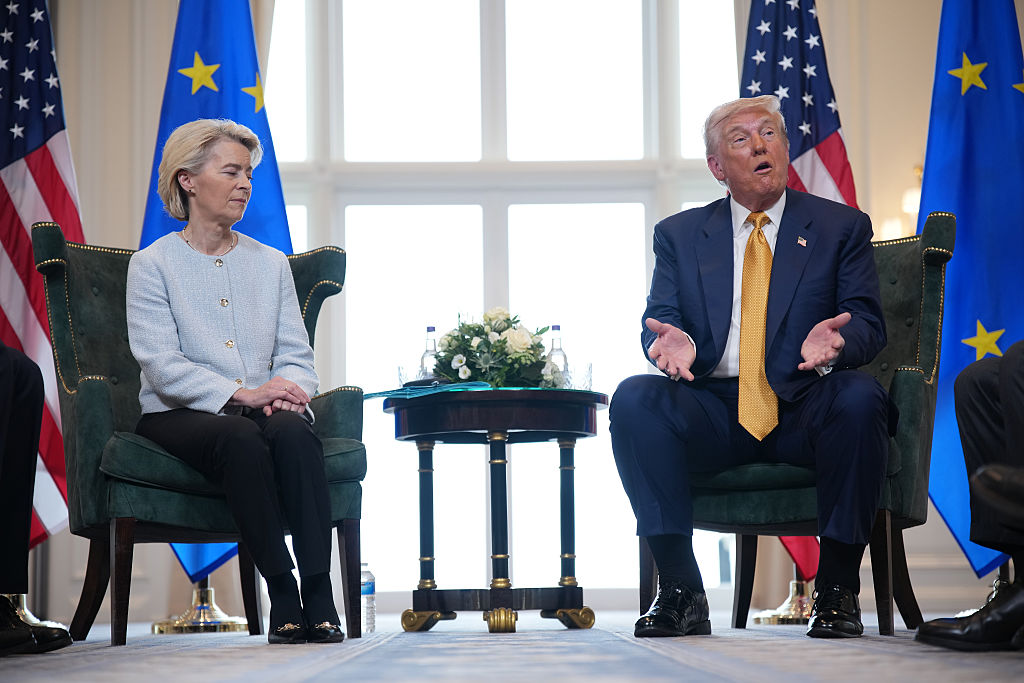Engineers know that system stability requires a capacity to manage unexpected accidents. Water-tight compartments increase cost and complexity, but a vessel without them won’t survive a hull breach. Fuses keep a short in one circuit from crashing the entire system. Unfortunately, the great neoliberal era taught our leaders to eschew the wisdom of shipbuilders. New York Times writer Tom Friedman assured them the world was now flat, and so they embraced cost efficiency at the expense of the sort of compartmentalisation that keeps an economy afloat when it runs aground. Corporate CEOs wrung out costs by outsourcing production to China, but when the Covid disaster struck, these efficient supply chains collapsed. Germany stifled domestic consumer demand in the name of labour cost competitiveness and now finds it hard to sustain prosperity when foreign demand for her products declines. Certain trade barriers may be economically inefficient but they can be politically stabilising by insulating domestic markets from the vagaries of the global economy. National borders can slow destabilising capital flows and protect domestic labour from subsidised competition. Like a ship built without a thought to potential disaster, an economy designed for cost efficiency alone may sail along happily until it crashes into something unexpected, at which point the citizenry looks for the lifeboats.
A salient example of the danger of sacrificing stability for cost efficiency is the eurozone. While removing currency fluctuations reduced the cost of doing business across Europe, monetary union allowed a fiscal crisis in one country to rip right across the Union. French President Mitterrand’s profligacy in 1981 led only to a shabby franc and a bruised Presidential ego. Germany did not need to bailout France. But Greek deficits nearly capsized the euro in 2008, and Germany had to pony up billions in bailouts to keep Athens afloat. In the end, only heroic intervention by Mario Draghi spared the eurozone from the contagion sparked by one of its smallest members, whose total indebtedness in 2010 constituted a mere 1.5 per cent of eurozone GDP. Keeping Greece locked in the eurozone took a beneficial devaluation off the table, imposed brutal austerity on the country, and prompted Brussels to override the democratic will of the Greek people. Not exactly something EU leaders had in mind when they welcomed “the cradle of democracy” into the eurozone.
While most economists (along with the entire Bundesbank) knew the planned currency union wasn’t close to an optimal single currency zone, Mitterrand offered a persuasive counterargument to Helmut Kohl: The rules governing the new eurozone would bring an optimal currency zone into being, et voila! Like many arguments made by French intellectuals, this proved clever but wrong. While the original Stability and Growth Pact would have imposed a euro for euro deduction from EU subsidies for national deficits in excess of 3 per cent of GDP, it was stripped of this critical enforcement mechanism by (yes) Germany and France. Monetary union didn’t convert France or Italy to German frugality, it simply removed the compartmentalisation that had confined Mitterrand’s mistakes to France. The gutted pact proved incapable of transforming national political economies structured around chronic deficits, fossilized labour protections and overstuffed state bureaucracies. The euro made these habits Germany’s problem.
Back before the inauguration of monetary union, the French debt to GDP ratio was a respectable 60 per cent. By the end of this year, it will likely exceed 115 per cent. Deprived of the traditional devaluation escape hatch, fiscally incontinent eurozone states preferred to borrow on Germany’s credit rating rather than reform their deeply ingrained political traditions. Until they couldn’t. Which describes France, now trundling out yet another Prime Minister destined for the political guillotine in a few months. There is no sign of a workable parliamentary majority committed to deficit reduction, on the contrary the leading factions pledge to reverse the modest reforms imposed by Macron’s presidential fiat.
While the European Central Bank could deter the bond markets from making a run on Greece’s €200 billion in debt, a similar “whatever it takes” attempt to protect €3.3 trillion in outstanding French debt would be much less credible. The polite fiction whereby debt mutualisation through the front door was eschewed in favour of de facto mutualisation through the backdoor of the ECB’s balance sheet will be nearly impossible given the scale of the bond purchases needed to protect France. The bond markets are so far willing to trust the backing of the European Central Bank, but that €3.3 trillion in French debt must be focusing minds in Frankfurt. You may reasonably infer that they are already devising an austerity programme more stringent than anything under consideration in Paris. That proud Marianne could be pummelled by angry German accountants like some common southern European deadbeat could do more to delegitimise the elites running the country than anything since the Algerian crisis.
Should a French debt crisis threaten to overwhelm the ECB, the EU may be compelled to install circuit breakers, or “counter-cyclical stabilizers” in wonk-speak. Saving the eurozone from an uncontrolled break-up could require stabilisers including common unemployment insurance, common bank deposit insurance, and of course a formal guarantee to back the debts of eurozone members with the full resources of the Union. All will require eurobonds to make these commitments credible, building on the precedent of the pandemic relief fund. This may be politically impossible today, but a renewed euro crisis emerging in the EU’s second largest economy could force the Germans to accept common debt or lose the common currency. The EU likes to think that crises build its governing capacity, ideally at the expense of its member states. But should it fail to manage a French bond crisis, it may find that angry populists reclaim national powers and perhaps even national currencies in order to protect their fellow countrymen from the consequences of elite failure.





EU elites, watch and learn: Cracker Barrel populism comes for Europe